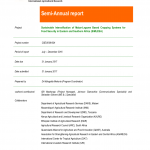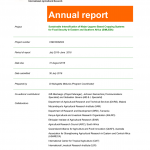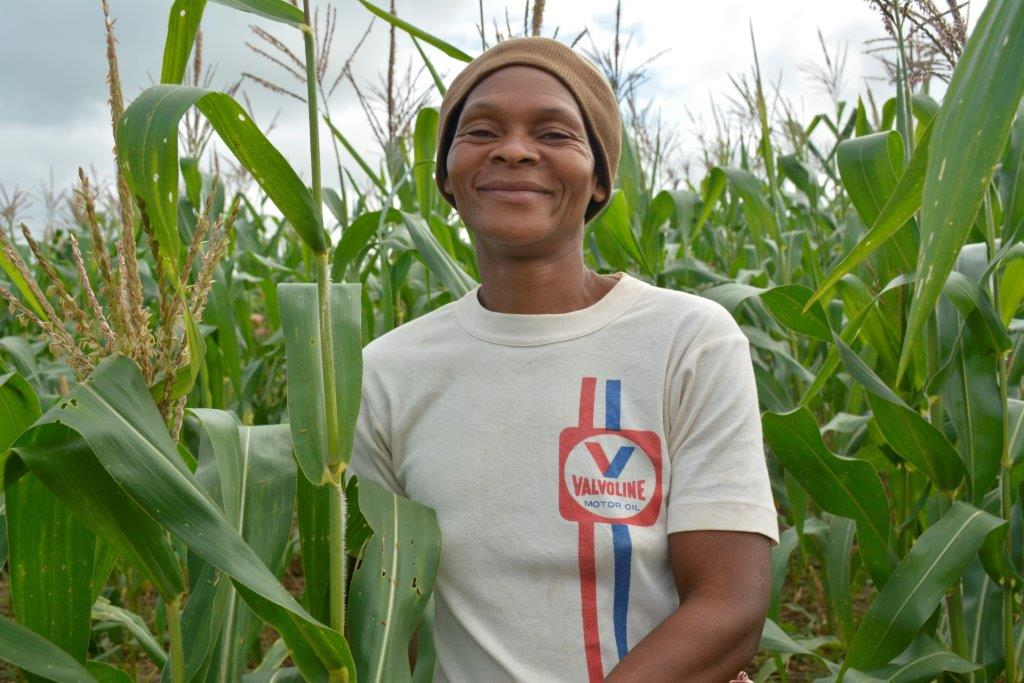Our latest impressions and news
Author: rllopez
Increased investment needed to adapt Africa’s agriculture to climate change
Written by rllopez on . Posted in News, Stories.
HARARE, Zimbabwe (CIMMYT) – Delegates at a conference in June called for a new focus and increase in investment to ensure eastern and southern Africa’s farming systems can withstand the impacts of climate change.
Africa is likely to be the continent most vulnerable to climate change, according to the UN Framework Convention on Climate Change. Smallholders produce around 80 percent of all food in sub-Saharan Africa, and rely primarily on rainfall for irrigation – a source that is becoming scarcer and unpredictable under climate change. Farming is also often practiced in marginal areas like flood plains or hillsides, where increasing and more intense weather shocks cause severe damage to soil and crops.
Tanzania’s Minister for Agriculture, Food Security and Cooperatives Charles Tizeba said during a conference on the future of the Sustainable Intensification of Maize-Legume Based Cropping Systems for Food Security in Eastern and Southern Africa (SIMLESA) project, an initiative led by the International Maize and Wheat Improvement Center (CIMMYT) and funded by the Australian Centre for International Agricultural Research (ACIAR).
http://www.cimmyt.org/increased-investment-needed-to-adapt-africas-agriculture-to-climate-change/
SIMLESA Program Semi-Annual Report: July – December 2016
Written by rllopez on . Posted in Reports.

This semi-annual progress report is an outline of activities under the Sustainable Intensification of Maize-Legume Based Cropping Systems for Food Security in Eastern and Southern Africa (SIMLESA) program for the July to December 2016 reporting period. The SIMLESA program is being implemented in five main countries – Ethiopia, Kenya, Tanzania, Malawi and Mozambique. The program, in its second year of the second phase – utilizes pathways for the intensification of maize-legume based cropping systems through the promotion of resilient and adopted technologies. Funded by the Australian Centre for International Agricultural Research (ACIAR), SIMLESA was launched in March 2010 and is a multi-stakeholder collaborative research program managed by the International Maize and Wheat Improvement Center (CIMMYT) and implemented by National Agricultural Research Systems (NARS) in the core countries, with backstopping inputs from other partners. Botswana, Uganda and Rwanda are spillover countries benefitting from ongoing SIMLESA research activities, (See map on page i). The program is working with a wide range of collaborators1
The program aims to create more productive, resilient, profitable and sustainable maize-legume farming systems that overcome food insecurity and help reverse soil fertility decline, particularly in the context of climate risk and change. The program is helping farmers to diversify their crops, increase food production, and withstand the risks of climate variability and drought. SIMLESA is envisaged to reach 650,000 small farming households in the five countries over a 10-year period. The second phase of the program (SIMLESA II) was launched in July 2014 with modified program objectives and emphasis on scaling out evaluated technologies.
To read full report click here
SIMLESA Program Annual Report July July 2015–June 2016
Written by rllopez on . Posted in Reports.

This annual progress report is a synopsis of activities under the Sustainable Intensification of Maize-Legume Cropping Systems for Food Security in Eastern and Southern Africa (SIMLESA) program over the period July 2015 to June 2016 in the SIMLESA implementing countries – Ethiopia, Kenya, Tanzania, Malawi and Mozambique. The program, in its second year of the second phase – utilizes pathways for the intensification of maize-legume cropping systems through the promotion of resilient and adopted technologies. Funded by the Australian Centre for International Agricultural Research (ACIAR), SIMLESA was launched in March 2010 and is a multi-stakeholder collaborative research program managed by the International Maize and Wheat Improvement Center (CIMMYT) and implemented by National Agricultural Research Systems (NARS) in the core countries, with backstopping inputs from other partners. Botswana, Uganda and Rwanda are spillover countries benefitting from ongoing SIMLESA research activities, (See map on page i).
Collaborators of the program include: Association for Strengthening Agricultural Research in Eastern and Central Africa (ASARECA), Agricultural Research Council (ARC) of South Africa, Queensland Alliance for Agriculture and Food Innovation (QAAFI), International Center for Tropical Agriculture (CIAT) and International Livestock Research Institute (ILRI).
The program aims to create more productive, resilient, profitable and sustainable maize-legume farming systems that overcome food insecurity and help reverse soil fertility decline, particularly in the context of climate risk and change. The program is helping farmers to diversify their crops, increase food production, and withstand the risks of climate variability and drought. SIMLESA is envisaged to reach 650,000 small farming households in the five countries over a 10-year period. The second phase of the program (SIMLESA II) was launched in July 2014 with modified program objectives and emphasis on scaling out evaluated technologies.
To ready full report click here
Smallholders benefit from sustainable intensification in Mozambique
Written by rllopez on . Posted in News, Stories.
Maize-legume cropping systems have found a niche market among rural Mozambican farmers, thanks to good agricultural practices made possible by the SIMLESA program in the Manica province of the country.
Cowpeas are becoming increasingly more reliable as both a food and cash crop in the province with both high nutritional content beneficial for household consumption and a strong local market demand. SIMLESA program is working with farmers to change the country’s reliance on monoculture by promoting crop diversification as part of its broader agricultural technical package. The practice calls for farmers to plant a variety of crops, including cowpeas. The approach is beginning to take hold, with program clients adopting it.


